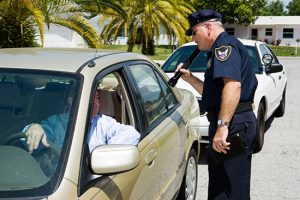The information in this blog is general, and is not a substitute for consulting with a lawyer concerning the facts and circumstances of your or a loved one’s case. Jurisdictions are not always consistent in the manner in which cases are processed and handled, and laws and procedures often change over time. For any legal matter, contact an experienced lawyer immediately.

When it comes to impaired driving in Michigan, marijuana cases are complicated. Unlike some States, Michigan does not have a legal limit or cut off level to provide guidance to individuals in their decisions to operate motor vehicles. Part of the reason for this is that [at the time this blog was written] the science behind THC body content and impairment does not have a precise correlation with each other. Persons who are regular marijuana users may have a higher tolerance than an infrequent user. Hence, unlike drinking and driving cases, there is not a legal THC blood alcohol limit to indicate a safer and legal ability to drive.
Under Michigan Compiled Law 257.625(1)(a) it is illegal to drive under the influence of marijuana. This is even true for someone who took the steps to become a medical marijuana patient, and the analysis does not change because it is legal to use marijuana in Michigan under State law. Under Michigan case law (People v Koon) it is not illegal for individual who is legally allowed to use marijuana to drive with marijuana in their system, as long as the driver is not under the influence of marijuana. Bear in mind that it is never lawful for an individual to smoke or consume marijuana while driving.
Driving under the influence of marijuana can be prosecuted as a misdemeanor criminal offense with a penalty of up to 93 days in jail, up to 2 years of probation with probationary conditions to be determined by the Judge, and driver’s license sanctions. The penalty can be enhanced to a more severe misdemeanor or felony based upon a number of different factors, including: one or more prior convictions for driving under the influence of alcohol or controlled substances or if an accident occurs resulting in a serious body impairment or death.

What do prosecutors consider when deciding to prosecute driving under the influence of marijuana cases? There is no general rule, but there are a number of different factors which are usually considered:
1. Proof from a laboratory that the driver had marijuana in there system at the time he or she was tested, relating to a traffic stop. However, proof that the THC in the driver’s system does not always equate to driving under the influence.
2. The reason why the police came into contact with the driver. Civil and criminal traffic offenses (such as, but not limited to, reckless driving, careless driving, speeding, disobey traffic control device, failure to maintain lane position, etc.) are often argued by prosecutors as proof of impairment or being under the influence. However, people commit traffic offenses everyday that have nothing to do with impairment.
3. The appearance of driver to the police officer. Did the driver or car have an odor of burnt marijuana? Did the driver have bloodshot eyes or dilated pupils? Was the driver able to answer questions in a coherent manner? Did the driver have slurred speech? Did the driver cooperate with the police investigation?

4. The performance of the driver on roadside sobriety tests. Was the driver able to follow instructions? Did the driver sway or lose balance when performing roadside tests? There are many reasons, outside of marijuana or substance impairment, that cause less than stellar performance for these tests. Some of these reasons may include: (but are not limited to) the following: physical and/or mental health issues; nervousness; medications; conditions outside (bad weather, uneven ground, poor lighting); clothing worn by the driver (for example, high heeled shoes); fatigue; etc.
5. Admissions made by the driver. Even though we have a 5th Amendment privilege, many people still tell on themselves. An admission by the driver of recent use of marijuana to a police officer is often used as evidence of impairment. Whether or not the statement made was actually or accurately made is sometimes a question raised by the defense during litigation for the jury to decide.
6. Statements made by other witnesses. Sometimes another individual will call the police to report alleged “bad driving”, which leads to a police stop and investigation. Whether or not the statement by the other witness is a case of exaggeration, road rage, mistaken identification, bias, mental instability, or some other reason is a possibility. It can be problematic when the reporter of the alleged “bad driving” is nowhere to be found, rendering the statement and the police stop as potentially the product of unreliable hearsay.
7. Items found during a search of the driver’s car. Marijuana and/or marijuana/drug paraphernalia found in the vehicle is often used by the prosecution to try and bolster their case. The presence of these items, however, do not always mean that they belonged to the driver, or that the alleged use of marijuana was recent enough to lead to impairment.

If the prosecution elects to go forward with a case involving alleged driving under he influence of marijuana, it is recommended that the person accused obtain experienced criminal defense legal representation as soon as possible. Why? First, a person arrested for a crime is not supposed to be questioned by the police without the presence of legal counsel, if the police are aware of the same. Second, the experienced criminal defense lawyer will help obtain a reasonable bond with reasonable bond conditions. Third, the experienced defense lawyer will obtain all discovery materials. The discovery materials may (but does not always) include the following: police reports, tickets, in car videos and/or body cameras, witness statements, laboratory results, search warrants, search warrant affidavits, etc. Fourth, the experienced criminal defense lawyer will evaluate the prosecution’s case for potential weaknesses, and use those weaknesses to build the best possible defense, or provide a stronger basis for plea negotiations. Fifth, the experienced criminal defense lawyer will pursue any necessary motions or requests for evidentiary hearings, if appropriate. Sixth, the experienced criminal defense lawyer will, if the client wants to have a trial, prepare the case to present a zealous defense. This may include presenting witnesses and experts to provide the basis for an argument for reasonable doubt. Seventh, the experienced criminal defense lawyer will make sure that the trial is conducted in a fair and just manner, to prevent the erosion or undermining of all constitutional protections afforded to Defendants; Eighth, the experienced criminal defense lawyer argue for the best possible sentence (if the client pleads guilty or is found guilty), presenting all potential mitigating and compelling reasons for leniency. The quality of an individual’s criminal defense lawyer is paramount to obtaining the best possible result, given the facts and circumstances of the case

 Michigan Criminal Attorneys Blog
Michigan Criminal Attorneys Blog

